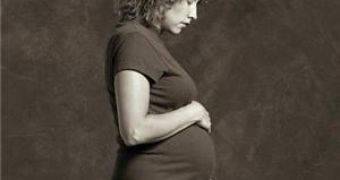Although surprising, the new discovery confirms once again that freezing the embryos after fertilization does not harm them in any way. During a study regarding children born both as a result of conventional In Vitro Fertilization and through IVF using frozen embryos, Anja Pinborg of the Copenhagen University Hospital showed that frozen embryos resulted in children of nearly normal weight, while conventional IVF techniques led to the birth of children averaging a weight of about 200 grams less than normal.
"There's selection," said Pinborg while explaining that although freezing the embryo does not make it more viable, those who survive the freezing process have most certainly a better chance of resulting in healthier children at birth. Additionally, women resorting to embryo freezing tend to be younger and in better shape than women receiving conventional IVF, because they do not take hormonal treatments during the egg harvest, thus suffer fewer complications during the implantation stage.
According to estimates, up to a fifth of all reproduction attempts in Europe in 2004 were conducted through IVF techniques using previously frozen embryos.
Pinborg added that the number of such procedures is constantly growing since the results of the study further assure couples that embryo freezing is as safe as conventional IVF, with the occurrence of birth defects roughly the same in both cases.
"It's important that this should be replicated. But if this data holds true, that would be great news," says David Keefe, chairman of obstetrics and gynecology at the University of South Florida in Tampa. Five years ago, Keefe triggered the alarm regarding the freezing of embryos when a study he was conducting indicated a higher rate of ectopic pregnancies as compared to conventional IVF, but the results later turned out to be a simple statistical error.
The study carried out by Pinborg involved 1,200 children born as a result of IVF using frozen eggs and 18,000 children born through conventional IVF between 1995 and 2006.

 14 DAY TRIAL //
14 DAY TRIAL //